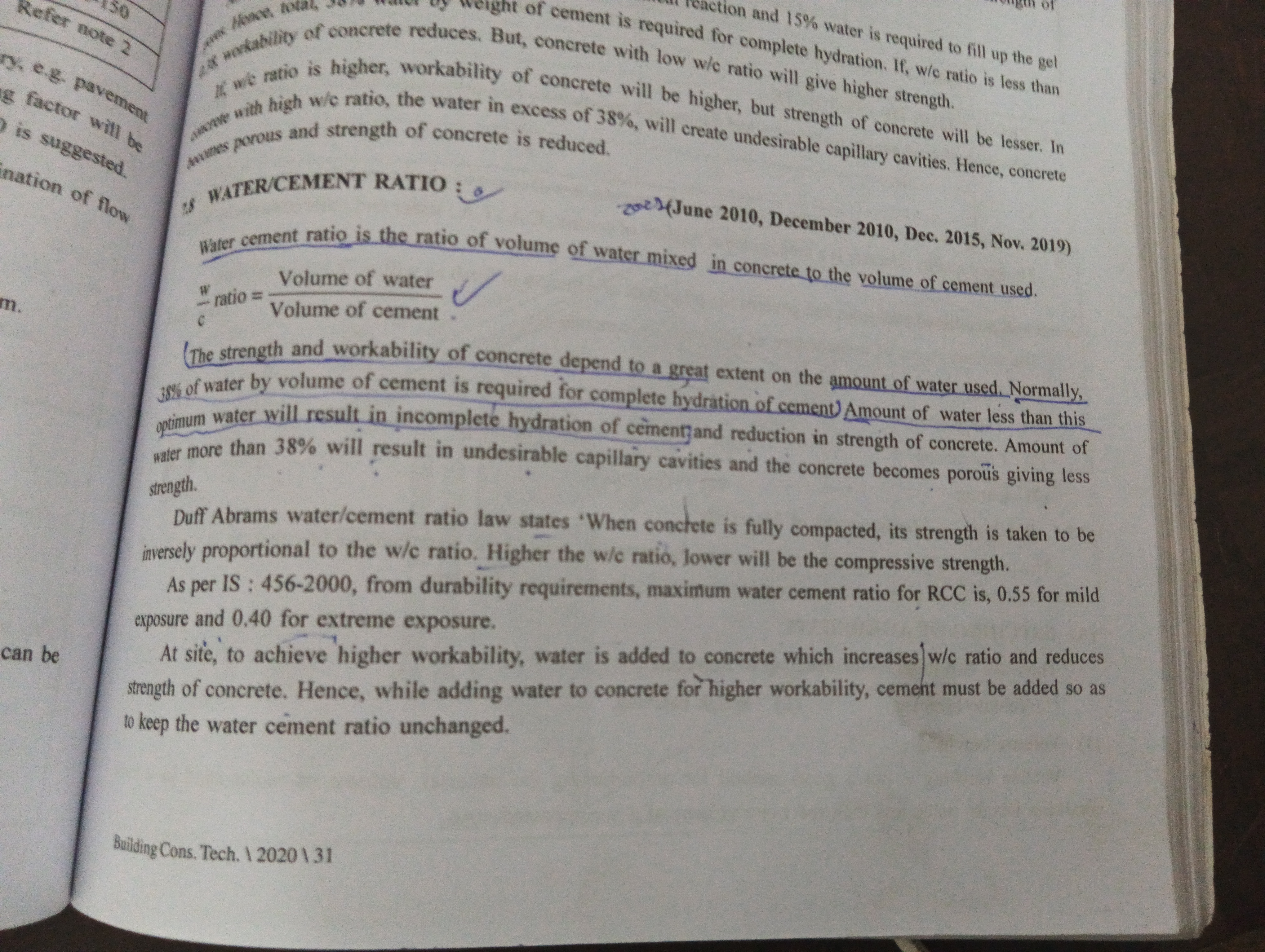What is the significance of the water/cement ratio in concrete, and how does it affect the strength and workability?

Understand the Problem
The question is discussing the water/cement ratio in concrete, its significance for strength and workability, and the implications of varying water content. It seeks to explain the balance needed for effective hydration of cement and the impact of too much or too little water.
Answer
A lower water-cement ratio increases strength and durability but decreases workability.
The water-cement ratio is critical as it affects the strength and workability of concrete. Generally, a lower ratio increases strength and durability but decreases workability. The optimal range must be maintained to ensure proper hydration and fewer capillary cavities.
Answer for screen readers
The water-cement ratio is critical as it affects the strength and workability of concrete. Generally, a lower ratio increases strength and durability but decreases workability. The optimal range must be maintained to ensure proper hydration and fewer capillary cavities.
More Information
The water-cement ratio is often kept between 0.3 and 0.5 for a balance between workability and strength. Adding too much water can lead to excessive shrinkage and cracks.
Tips
A common mistake is adding too much water to improve workability, which can significantly reduce concrete strength. Adjust cement quantity correspondingly to maintain the ideal ratio.
Sources
- How does the water-cement ratio affect the workability and strength of concrete? - jswonemsme.com
- What is the effect of the water-cement ratio on the properties of concrete? - civilengineeringinsightscivilinfo.quora.com
- Water–cement ratio - Wikipedia - en.wikipedia.org
AI-generated content may contain errors. Please verify critical information